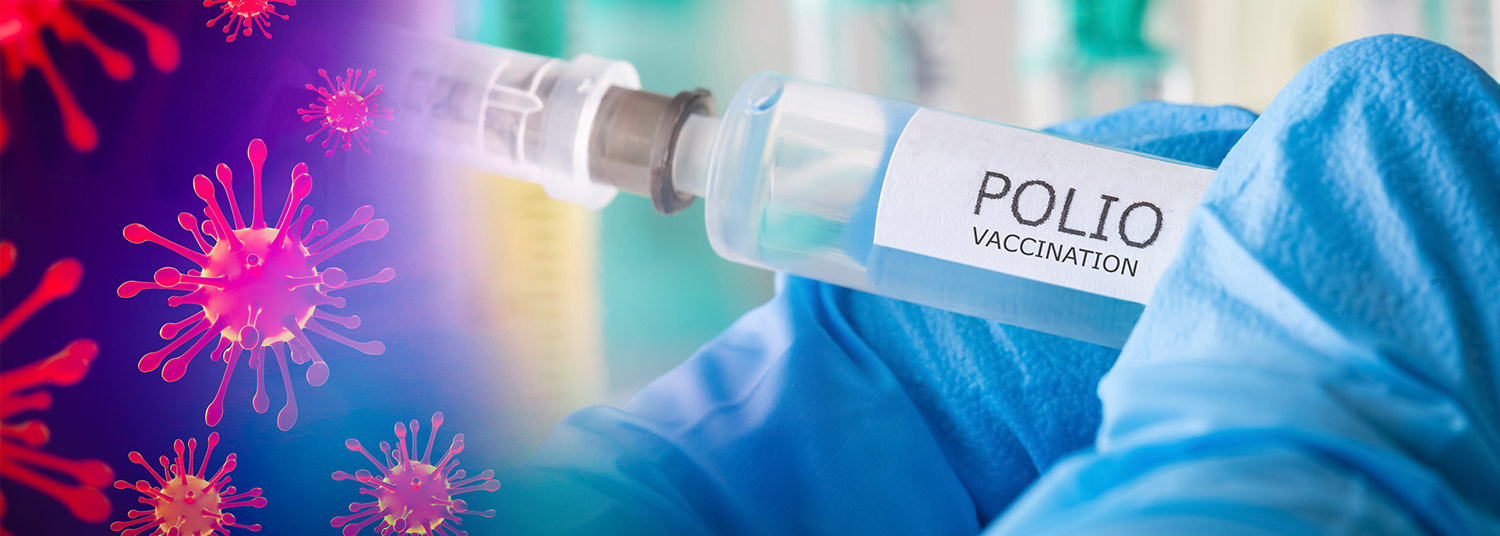April 12, 2022 | Nora Samaranayake
University of Maryland School of Medicine’s Institute of Human Virology contributes to Global Virus Network studies suggesting that the oral polio vaccine can protect people in developing nations that do not yet have access to COVID vaccines
Two new studies from the Global Virus Network, including the University of Maryland’s Institute of Human Virology and in partnership with the Petroleum Industry Health Organization of Iran, provide evidence that getting the oral polio vaccine made from live, weakened polio-virus may protect people from COVID-19 infection by stimulating the immune system.
One of these studies demonstrated a lower incidence of COVID infections in countries in which people received the ‘live’ polio vaccine compared to countries that only received the polio vaccine that does not contain a live virus. These findings were published on March 17, 2022, in PLOS One.
Another report from the research team showed that when young children received the ‘live’ polio vaccine their mothers, who were indirectly exposed to the poliovirus vaccine, did not get infected with COVID. This study was published late last year in JAMA Network Open.
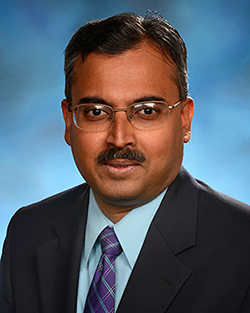 Within a few hours of exposure to any pathogens — including weakened viruses like those in the oral polio vaccine — the immune system activates its first line-of-defense. This defense produces an immune response to a broad variety of pathogen-related molecules and ramps up the immune system’s readiness for invaders — a process sometimes called ‘trained innate immunity.’ The outcome from one of these newest studies indicate that this trained innate immune response spurred by vaccination using the live polio-virus may provide protection for up to 6 months against COVID infection.
Within a few hours of exposure to any pathogens — including weakened viruses like those in the oral polio vaccine — the immune system activates its first line-of-defense. This defense produces an immune response to a broad variety of pathogen-related molecules and ramps up the immune system’s readiness for invaders — a process sometimes called ‘trained innate immunity.’ The outcome from one of these newest studies indicate that this trained innate immune response spurred by vaccination using the live polio-virus may provide protection for up to 6 months against COVID infection.
The researchers say that this implies that these live vaccines, technically known as live attenuated vaccines, may be used temporarily to protect people in low-income countries that do not yet have access to COVID vaccines.
“Although countries like the U.S. and those in Europe are dropping pandemic restrictions, many people in lower income countries remain unvaccinated due to lack of supply. Individuals in these countries are still at high risk for COVID infection and potential complications, particularly since these regions still lack the latest treatments and enough ventilators for those who need them,” said co-author Shyam Kottilil, MBBS, PhD, Professor of Medicine and Director of the Division of Clinical Care and Research, Institute of Human Virology, Chief of the Division of Infectious Diseases at the University of Maryland School of Medicine, and senior advisor to the GVN. “These live vaccines may provide a stop gap to reduce hospitalizations and deaths until we can get these people COVID vaccines.”
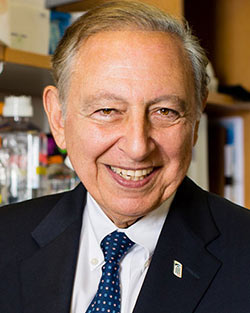 Senior author on the studies, Robert Gallo, MD, The Homer & Martha Gudelsky Distinguished Professor in Medicine, Co-Founder and Director of the Institute of Human Virology at the University of Maryland School of Medicine, a GVN Center of Excellence, and Co-Founder of the GVN and Chair of the GVN’s Scientific Leadership Board, said, “Early in the COVID-19 pandemic, prior to development of effective vaccines we proposed using live attenuated vaccines as a temporary solution to boost immunity until the vaccine could be developed. This idea directly stemmed from my GVN colleague and co-author Dr. Konstantin Chumakov, whose parents were vaccine researchers in the 1970s Soviet Union. His parents observed that flu rates seemed to drop in those people given the oral polio vaccine. Other GVN colleagues joined us in advocating for studies to determine if these live attenuated vaccines would be a feasible strategy during the coronavirus pandemic. Now we have some of the first evidence that they do offer protection. I hope funders take notice and increase support for these types of trials that study the innate immune response and provide significant hope in mitigating future pandemics.”
Senior author on the studies, Robert Gallo, MD, The Homer & Martha Gudelsky Distinguished Professor in Medicine, Co-Founder and Director of the Institute of Human Virology at the University of Maryland School of Medicine, a GVN Center of Excellence, and Co-Founder of the GVN and Chair of the GVN’s Scientific Leadership Board, said, “Early in the COVID-19 pandemic, prior to development of effective vaccines we proposed using live attenuated vaccines as a temporary solution to boost immunity until the vaccine could be developed. This idea directly stemmed from my GVN colleague and co-author Dr. Konstantin Chumakov, whose parents were vaccine researchers in the 1970s Soviet Union. His parents observed that flu rates seemed to drop in those people given the oral polio vaccine. Other GVN colleagues joined us in advocating for studies to determine if these live attenuated vaccines would be a feasible strategy during the coronavirus pandemic. Now we have some of the first evidence that they do offer protection. I hope funders take notice and increase support for these types of trials that study the innate immune response and provide significant hope in mitigating future pandemics.”
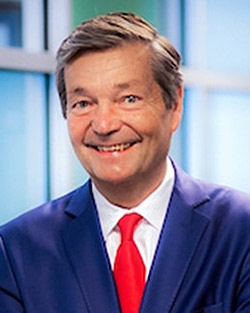 Christian Bréchot, MD, PhD, President of the GVN, Associate Vice President for International Partnerships and Innovation at University of South Florida (USF), and Professor, Division of Infectious Disease, Department of Internal Medicine at the USF Health Morsani College of Medicine, the GVN Southeast U.S. Regional Headquarters said, “The GVN serves as a catalyst to bring together the world’s foremost virologists. We are pleased to work with varying nations to initiate these important clinical trials.”
Christian Bréchot, MD, PhD, President of the GVN, Associate Vice President for International Partnerships and Innovation at University of South Florida (USF), and Professor, Division of Infectious Disease, Department of Internal Medicine at the USF Health Morsani College of Medicine, the GVN Southeast U.S. Regional Headquarters said, “The GVN serves as a catalyst to bring together the world’s foremost virologists. We are pleased to work with varying nations to initiate these important clinical trials.”
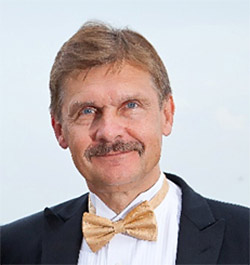 Co-author Konstantin Chumakov, PhD, a GVN Center of Excellence Director said, "These observations are yet another confirmation that live vaccines induce broad protection against infections caused by pathogens other than their direct target. They urgently call for the direct prospective clinical studies of this phenomenon that could lead to the development of a novel class of vaccines based on stimulation of trained innate immunity. Such vaccines could become the badly needed universal countermeasure against emerging infections.”
Co-author Konstantin Chumakov, PhD, a GVN Center of Excellence Director said, "These observations are yet another confirmation that live vaccines induce broad protection against infections caused by pathogens other than their direct target. They urgently call for the direct prospective clinical studies of this phenomenon that could lead to the development of a novel class of vaccines based on stimulation of trained innate immunity. Such vaccines could become the badly needed universal countermeasure against emerging infections.”
In the PLOS One study, the researchers compared infection rates per 100,000 people in 146 countries that received both the live and the injectable polio vaccine, which does not contain live virus, compared to 56 countries that only used the injectable, non-live version. They found infection rates in countries that did not use the live polio vaccine were about three times higher than those that did use the live polio vaccine.
For the JAMA Network Open study, the researchers followed 419 mothers in Iran whose young children were given the live polio vaccine compared to 3,771 mothers whose children did not receive the live polio vaccine. None of the mothers whose children received the live polio vaccine developed COVID, whereas 28 mothers whose children did not receive the live polio vaccine did contract COVID within 9 months. Researchers know that polio-virus and even the weakened virus from the vaccine can be shed in the stool. The researchers surmise that the mothers were exposed to virus when caring for their children through bathing and diaper changing.
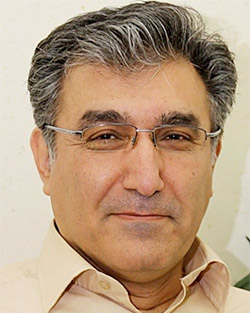 “It is heartening to find similar study results obtained from very different approaches strengthening our hypothesis that using the oral vaccine may provide protection against SARS-CoV-2, the virus that causes COVID,” said the first author on the studies, Farrokh Habibzadeh, MD, Special Consultant on Public Health for the GVN and the Managing Director of the Research & Development Unit of the Petroleum Industry Health Organization of Shiraz, Iran. He added that, “This hypothesis should be tested in additional quality clinical trials, preferably conducted in countries where the oral polio vaccine is currently in use as part of their national immunization for polio.”
“It is heartening to find similar study results obtained from very different approaches strengthening our hypothesis that using the oral vaccine may provide protection against SARS-CoV-2, the virus that causes COVID,” said the first author on the studies, Farrokh Habibzadeh, MD, Special Consultant on Public Health for the GVN and the Managing Director of the Research & Development Unit of the Petroleum Industry Health Organization of Shiraz, Iran. He added that, “This hypothesis should be tested in additional quality clinical trials, preferably conducted in countries where the oral polio vaccine is currently in use as part of their national immunization for polio.”
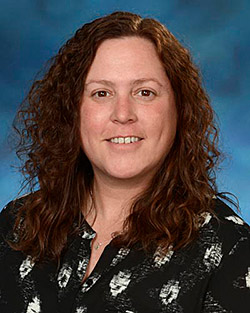 Co-author Kristen Stafford, PhD, MPH, Associate Professor of Epidemiology & Public Health at the Institute of Human Virology at the University of Maryland School of Medicine and member of the GVN, said, “Some high-income countries declare pandemics over when in fact they just transition to only affecting low-income countries. We do not want this pandemic to become like the HIV-epidemic, where years and years of delays led to millions of excess deaths because the antiretroviral medications were too limited in supply or expensive to reach those disproportionately affected. We need to find simpler, inexpensive solutions to protect people until they can get their full doses and boosters of the COVID vaccines.”
Co-author Kristen Stafford, PhD, MPH, Associate Professor of Epidemiology & Public Health at the Institute of Human Virology at the University of Maryland School of Medicine and member of the GVN, said, “Some high-income countries declare pandemics over when in fact they just transition to only affecting low-income countries. We do not want this pandemic to become like the HIV-epidemic, where years and years of delays led to millions of excess deaths because the antiretroviral medications were too limited in supply or expensive to reach those disproportionately affected. We need to find simpler, inexpensive solutions to protect people until they can get their full doses and boosters of the COVID vaccines.”
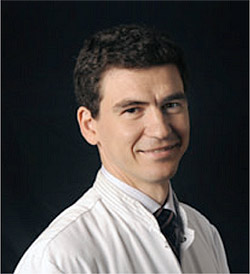 “The important observations that the oral polio vaccine may protect against different infections such as COVID-19 is crucial for future pandemic preparedness. Understanding the mechanisms of protection induced by the oral polio vaccine and other live attenuated vaccines can open the door for the development of improved vaccination strategies to protect against broader infections, and thus provide partial protection against new pathogens during a pandemic until specific vaccines can be developed” said Mihai Netea, MD, PhD, of the Department of Internal Medicine and Radboud Center for Infectious Diseases, Radboud University Medical Center, a GVN Center of Excellence, and GVN Center Director.
“The important observations that the oral polio vaccine may protect against different infections such as COVID-19 is crucial for future pandemic preparedness. Understanding the mechanisms of protection induced by the oral polio vaccine and other live attenuated vaccines can open the door for the development of improved vaccination strategies to protect against broader infections, and thus provide partial protection against new pathogens during a pandemic until specific vaccines can be developed” said Mihai Netea, MD, PhD, of the Department of Internal Medicine and Radboud Center for Infectious Diseases, Radboud University Medical Center, a GVN Center of Excellence, and GVN Center Director.
One of the limitations of the live, weakened vaccines, is that they are not recommended for people with suppressed immune systems, as it could lead to infection.
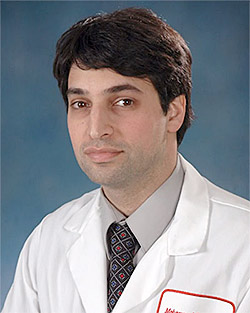 Additional authors on the studies include Mohammad Sajadi, MD, Professor of Medicine at the Institute of Human Virology at the University of Maryland School of Medicine and member of the GVN; and Mahboobeh Yadollahie, MD, Ashraf Simi, BScN, Saeid Saeidimehr, MD, (JAMA Network Open only), Mohammad Rafiei, MD, (JAMA Network Open only), and Iman Hafizi-Rastani, MSc (PLOS One only) of the Petroleum Industry Health Organization of Iran.
Additional authors on the studies include Mohammad Sajadi, MD, Professor of Medicine at the Institute of Human Virology at the University of Maryland School of Medicine and member of the GVN; and Mahboobeh Yadollahie, MD, Ashraf Simi, BScN, Saeid Saeidimehr, MD, (JAMA Network Open only), Mohammad Rafiei, MD, (JAMA Network Open only), and Iman Hafizi-Rastani, MSc (PLOS One only) of the Petroleum Industry Health Organization of Iran.
The authors received no specific funding for this work.
Dr. Kottilil received grants from Gilead for other research and serves on the advisory boards of Merck and Regeneron.
About the Institute of Human Virology
Formed in 1996 as a partnership between the State of Maryland, the City of Baltimore, the University System of Maryland, and the University of Maryland Medical System, the IHV is an institute of the University of Maryland School of Medicine and is home to some of the most globally-recognized and world-renowned experts in all of virology. The IHV combines the disciplines of basic research, epidemiology, and clinical research in a concerted effort to speed the discovery of diagnostics and therapeutics for a wide variety of chronic and deadly viral and immune disorders, most notably HIV, the virus that causes AIDS. For more information, visit ihv.org and follow us on Twitter @IHVmaryland.
About the University of Maryland School of Medicine
Now in its third century, the University of Maryland School of Medicine was chartered in 1807 as the first public medical school in the United States. It continues today as one of the fastest growing, top-tier biomedical research enterprises in the world -- with 46 academic departments, centers, institutes, and programs, and a faculty of more than 3,000 physicians, scientists, and allied health professionals, including members of the National Academy of Medicine and the National Academy of Sciences, and a distinguished two-time winner of the Albert E. Lasker Award in Medical Research. With an operating budget of more than $1.3 billion, the School of Medicine works closely in partnership with the University of Maryland Medical Center and Medical System to provide research-intensive, academic and clinically based care for nearly 2 million patients each year. The School of Medicine has nearly $600 million in extramural funding, with most of its academic departments highly ranked among all medical schools in the nation in research funding. As one of the seven professional schools that make up the University of Maryland, Baltimore campus, the School of Medicine has a total population of nearly 9,000 faculty and staff, including 2,500 students, trainees, residents, and fellows. The combined School of Medicine and Medical System (“University of Maryland Medicine”) has an annual budget of over $6 billion and an economic impact of nearly $20 billion on the state and local community. The School of Medicine, which ranks as the 8th highest among public medical schools in research productivity (according to the Association of American Medical Colleges profile) is an innovator in translational medicine, with 606 active patents and 52 start-up companies. In the latest U.S. News & World Report ranking of the Best Medical Schools, published in 2021, the UM School of Medicine is ranked #9 among the 92 public medical schools in the U.S., and in the top 15 percent (#27) of all 192 public and private U.S. medical schools. The School of Medicine works locally, nationally, and globally, with research and treatment facilities in 36 countries around the world. Visit medschool.umaryland.edu
Contact
Institute of Human Virology
Nora Samaranayake
Chief Communications & Public Affairs Officer
(443) 823-0613 (phone)
(410) 706-1952 (fax)
nsamaranayake@ihv.umaryland.edu
Related stories
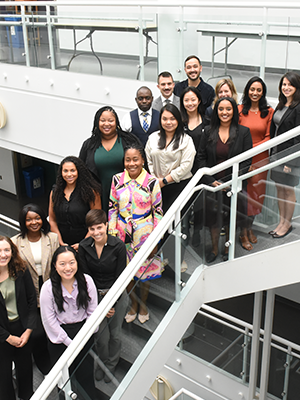
Friday, November 17, 2023
Major Funding of Partnership for HIV/AIDS Progress (PFAP) Award from the National Institute of Health (NIH) Office of AIDS Research to the Research Initiative on Infectious Disease and Subst
The Institute of Human Virology (IHV) at the University of Maryland School of Medicine (UMSOM) received an annual award for $3 million funded by the NIH Office of AIDS Research. The PFAP award is projected to total approximately $9 million over four years. Principal Investigators are Elana Rosenthal, MD and Sarah Kattakuzhy, MD, MPH.
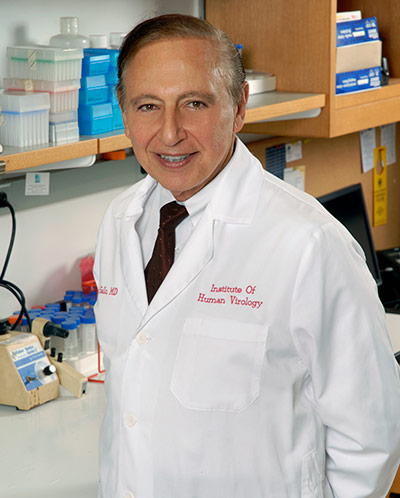
Tuesday, March 28, 2023
Two-Time Lasker Awardee and Internationally Acclaimed Virologist, Robert C. Gallo, MD, To Step Down as Director of UM School of Medicine’s Institute of Human Virology (IHV)
Robert C. Gallo, MD, one of the world’s leading virologists and cancer researchers, announced he has stepped down from his position as Director of the Institute of Human Virology (IHV) at the University of Maryland School of Medicine (UMSOM), effective March 24.
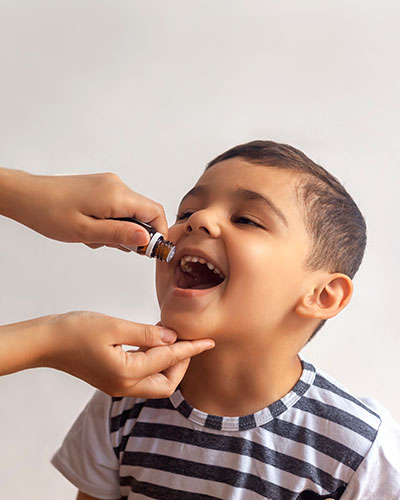
Monday, March 06, 2023
Eradicating Polio Will Require Changing the Current Public Health Strategy
The recent public health emergency declarations in New York and London due to polio infections and detection of the virus in these cities’ wastewater strongly indicate that polio is no longer close to being eradicated. Now, four members of the Global Virus Network (GVN) proposed changes in global polio eradication strategy to get the world back on track to one day eliminating polio’s threat.
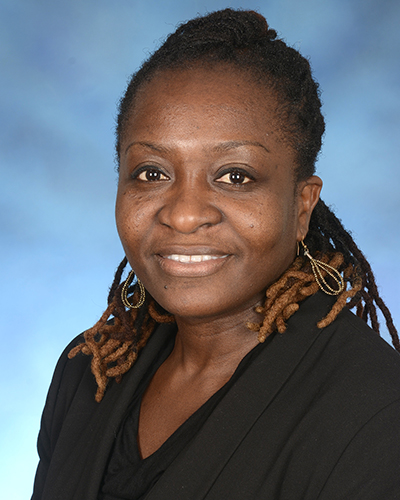
Tuesday, February 15, 2022
Multi-Country African Research Reports High Rates of COVID-19-Related Deaths Among Hospitalized Children and Adolescents
African children and adolescents hospitalized with COVID-19 experience much higher mortality rates than Europeans or North Americans of the same age, according to a recently published study conducted by researchers from the Institute of Human Virology (IHV) at the University of Maryland School of Medicine (UMSOM) and the Institute of Human Virology Nigeria (IHVN). Both organizations are members of the Global Virus Network (GVN).

Monday, December 13, 2021
Reuters Health via Medscape: Passive Exposure to Oral Polio Vaccine May Protect Against COVID-19 for at Least 6 Months
Mothers of children immunized with the oral polio vaccine, which is made from a live attenuated virus, seemed to be protected against symptomatic COVID-19 for at least six months based on a study in Iran.
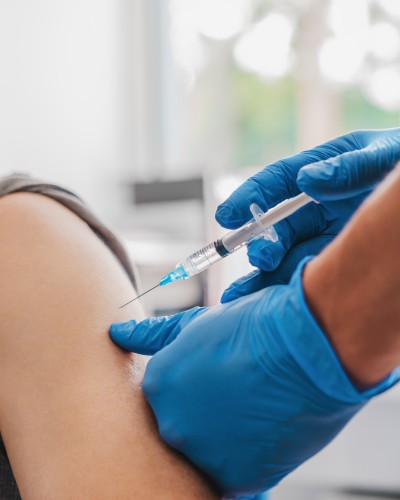
Tuesday, May 18, 2021
Institute of Human Virology Leadership Contributes to Global Virus Network Analysis Suggesting Measles, Polio and Tuberculosis Vaccines May Boost Immunity to Coronavirus
Institute of Human Virology at the University of Maryland School of Maryland scientists, who are also members of the Global Virus Network (GVN), a coalition comprised of human and animal virologists from 63 Centers of Excellence and 11 Affiliates in 35 countries, and colleagues today published a perspective proposing that live attenuated vaccines (LAVs), such as those for tuberculosis, measles, and polio, may induce protective innate immunity that mitigate other infectious diseases, triggering the human body’s natural emergency response to infections including COVID-19 as well as future pandemic threats.
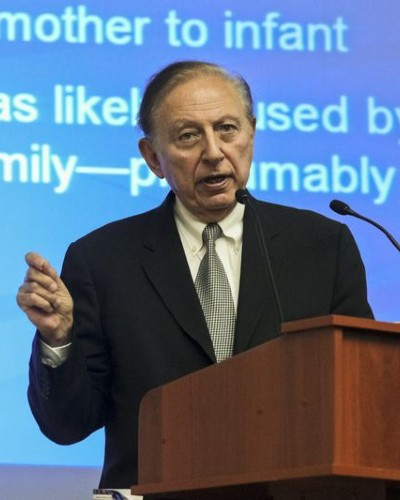
Friday, April 02, 2021
Baltimore Sun: Q&A with Dr. Robert Gallo: ‘The world has to be linked to fight a pandemic’
Robert Gallo, the eminent virologist best known as co-discoverer of the AIDS virus, says the world needs a system to confront viral disease that’s free of politics and primed to quickly warn nations about new threats as if “the bad Martians are coming.” The uneven and politicized response to the coronavirus pandemic, with a worldwide toll approaching 3 million, including 553,000 deaths in the United States, proves Gallo’s point.
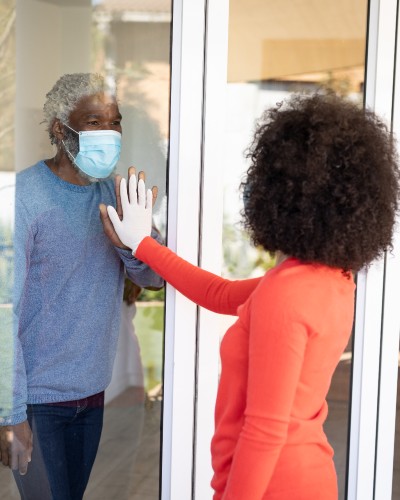
Thursday, April 01, 2021
Associated Press: Can I still spread the coronavirus after I’m vaccinated?
Can I still spread the coronavirus after I’m vaccinated? It’s possible. Experts say the risk is low, but are still studying how well the shots blunt the spread of the virus. The current vaccines are highly effective at preventing people from getting seriously sick with COVID-19.
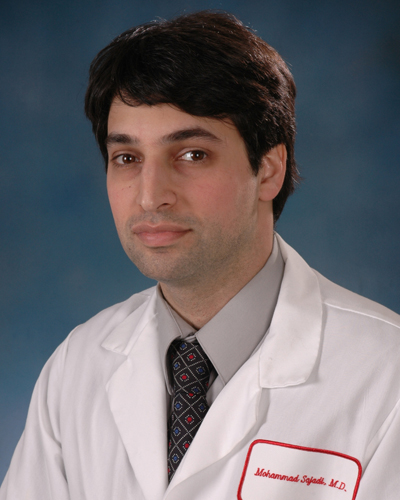
Tuesday, March 30, 2021
USA Today Opinion: Why COVID-19 survivors should only get one dose of mRNA vaccine
Data seems to be indicating that survivors of COVID-19 may not need two doses of mRNA vaccine, which would free up more doses for others.
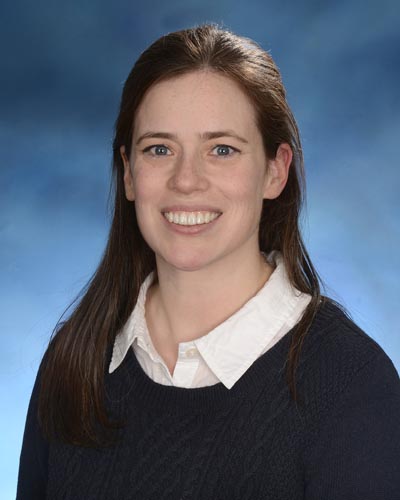
Tuesday, March 16, 2021
ABC7 WJLA - 7 On Your Side: Doctor rates COVID-19 risks for activities in a partially-vaccinated world
“We see people come in, it's still with really severe disease,” said Dr. Eleanor Wilson, an infectious disease specialist and an associate professor of medicine at the Institute of Human Virology at the University of Maryland School of Medicine.
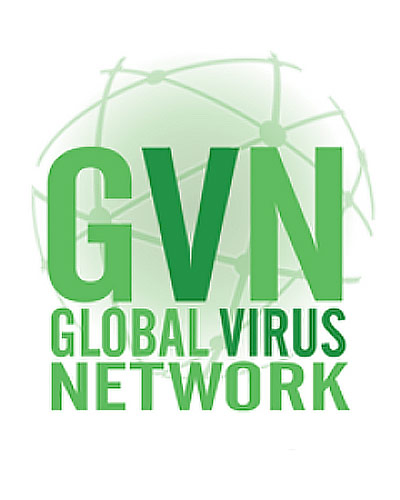
Tuesday, February 16, 2021
The Baltimore Sun: Maryland sees little flu this season as researchers wonder if flu vaccine staves off COVID-19
February is typically the cruelest month for the flu with thousands of infections, hundreds hospitalized and some dying in Maryland. Not this year. Due in part to the coronavirus pandemic and preventative measures associated with it, the influenza virus is downright rare in Maryland and across the nation. But researchers are wondering if there’s a chance that the flu shot you got in the fall may yet fend off a nasty infection — of COVID-19.
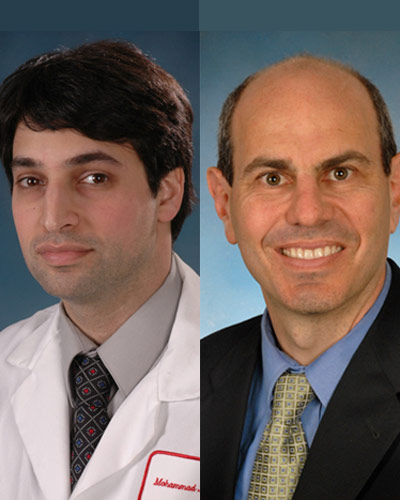
Thursday, February 04, 2021
WTOP NEWS: What a new U.Md. study says about skipping second doses of COVID-19 vaccine
None of the trials conducted on the Moderna and Pfizer-BioNTech vaccines tested them on people who already had been infected by the coronavirus. Now, a study involving people previously infected with COVID-19 suggests the immune response from getting sick may act like getting a first dose of those double-shot vaccines.

Tuesday, February 02, 2021
Business Insider: People who had COVID-19 may develop 10 times more antibodies after a single vaccine dose - a sign they might only need one shot
Business Insider - People who had COVID-19 developed at least 10 times more antibodies after their first vaccine dose than the average uninfected person who received two doses, new research shows. Another preliminary study similarly found that healthcare workers who had COVID-19 responded to their first shot the way most people respond to their second. The researchers both suggested that post-COVID patients may only need one shot to sufficiently protect them from the disease again.
Tuesday, February 02, 2021
The Baltimore Sun - People who’ve had COVID-19 may not need both doses of the vaccine, University of Maryland study suggests
The Baltimore Sun - A study by researchers at the University of Maryland School of Medicine suggests that people who have already had COVID-19 may not need both doses of the vaccine to be protected from the virus. The emerging research comes as states, including Maryland, face continued vaccine shortages, leaving the growing list of eligible patients to scramble for few available appointments. But experts say that withholding second doses could present logistical obstacles for an already challenged process.
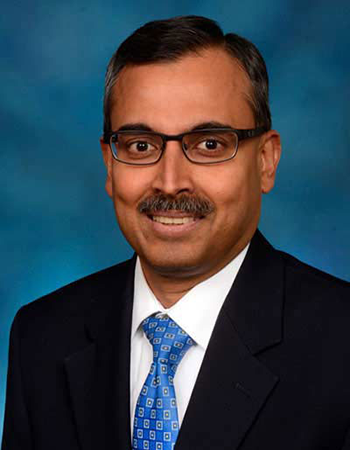
Tuesday, December 15, 2020
UMSOM Institute of Human Virology’s Shyam Kottilil, MBBS, PhD Receives Top Award from National Physician’s Group
Shyam Kottilil, MBBS, PhD, professor of medicine at the University of Maryland School of Medicine (UMSOM), and Director of UMSOM’s Institute of Human Virology (IHV) Division of Clinical Care and Research, has been awarded Mastership in the American College of Physicians (ACP), the national organization of internists. Dr. Kottilil is also Chief of the Division of Infectious Diseases in the UMSOM Department of Medicine and is a scientific advisory member of the Global Virus Network (GVN).
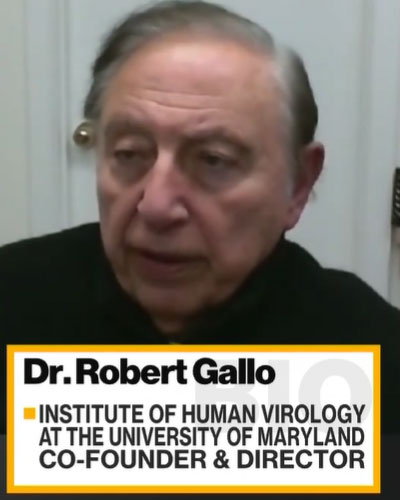
Friday, December 11, 2020
Bloomberg TV Asia: Dr. Robert Gallo on COVID-19 Vaccines
Dr. Robert Gallo, co-founder and international scientific advisor of the Global Virus Network and the co-founder and director of the Institute of Human Virology at the University of Maryland School of Medicine, discusses the rollout of the Covid-19 vaccines. The first Covid-19 vaccine expected to be deployed in the U.S. won the backing of a panel of government advisers, a step that will likely help clear the way for emergency authorization by the Food and Drug Administration. Gallo, who co-discovered HIV as the cause of AIDS in 1984, speaks with Haidi Stroud-Watts and Shery Ahn on "Bloomberg Daybreak: Australia." (Source: Bloomberg)
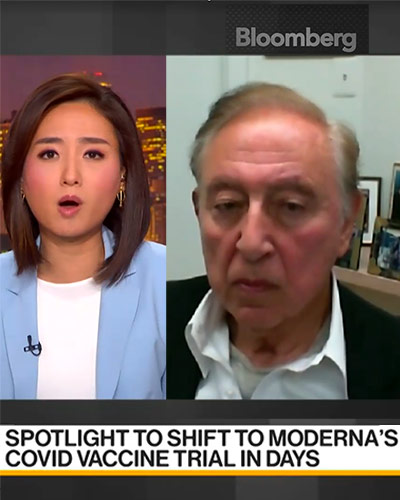
Wednesday, November 11, 2020
Dr. Robert Gallo on Bloomberg Asia on COVID Vaccine Prospects
Dr. Robert C. Gallo, The Homer & Martha Gudelsky Distinguished Professor in Medicine, co-founder and director of the Institute of Human Virology at the University of Maryland School of Medicine and co-founder and international scientific advisor of the Global Virus Network, discusses the timeline and safety of Covid-19 vaccine trials. He speaks with Shery Ahn and Haidi Stroud-Watts on "Bloomberg Daybreak: Asia".

Thursday, October 08, 2020
NPR: Could The Live Flu Vaccine Help You Fight Off COVID-19?
In case you were still procrastinating getting a flu shot this year, here's another reason to make it a priority. There's a chance the vaccine could offer some protection against COVID-19 itself, says virologist Robert Gallo, who directs the Institute of Human Virology at the University of Maryland School of Medicine and is chairman of the Global Virus Network.
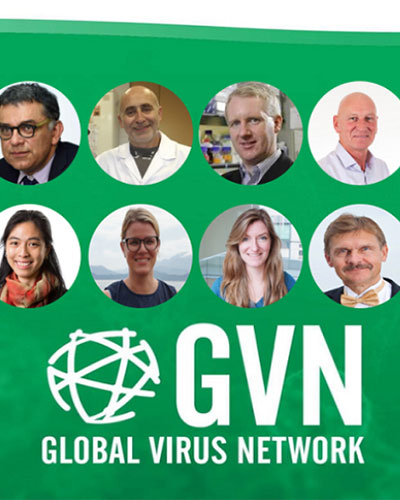
Wednesday, September 30, 2020
GVN’s Top Virus Experts Meet Together To Identify Most Promising Advances To Battle COVID-19 & Strategies To Prepare For Future Pandemics
Rapid Diagnostic Testing, Repurposing Drug Therapies and Vaccines Targeting Innate Immunity, Are Integral Factors in Mitigating COVID-19. The Global Virus Network (GVN), a coalition of the world’s leading medical and basic virology research centers working to prevent illness and death from viral disease, convened a press conference with attendees from across the globe to discuss key takeaways from the GVN virtual 2020 Special Annual Meeting held September 23-24, 2020.

Tuesday, September 29, 2020
NPR: Scientists Experiment With TB Vaccine To See If It Slows Spread Of COVID-19
As scientists race to develop a vaccine specific for COVID-19, some researchers are testing an old vaccine, that's been proven safe and is cheap to manufacture, to see if it could slow the pandemic.
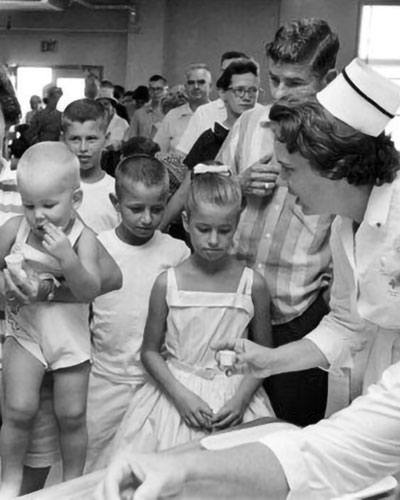
Friday, August 28, 2020
WYPR: Could Polio Vaccine Corral Covid-19?
A safe, effective vaccine against Covid-19 could resurrect jobs, send kids back to classrooms--change our lives. But how safe and effective? And how quickly can we have it? Dr. Robert Gallo, the AIDS-research pioneer now leading virus science at the Institute of Human Virology at the University of Maryland School of Medicine and the Global Virus Network, argues we could get much of the benefit by inoculating people with an old, very cheap drug -- the oral Polio vaccine developed seven decades ago. Gallo contends it would trigger our ‘innate immunity’-- the body’s emergency response when a threat shows up.
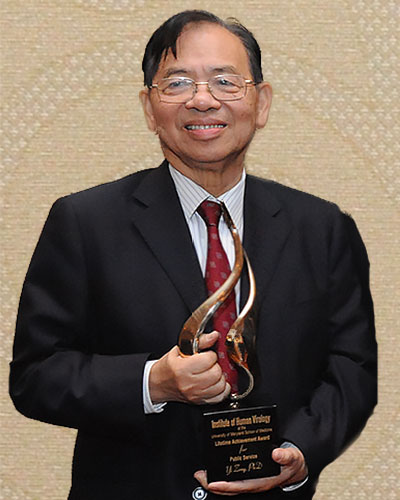
Friday, July 24, 2020
A Statement from the Leadership of the Institute of Human Virology and the Global Virus Network on the Passing of Renowned Chinese Virologist Yi Zeng
The IHV at the University of Maryland School of Medicine and the Global Virus Network (GVN), a coalition comprised of the world’s preeminent human and animal virologists from 55 Centers of Excellence and 10 Affiliates in 32 countries, collectively mourns the passing of Professor Yi Zeng, MD, Academician of the Chinese Academy of Sciences, former President of the Chinese Academy of the Preventive Medicine and former Dean of the College of Life Science and Bioengineering at Beijing University of Technology.
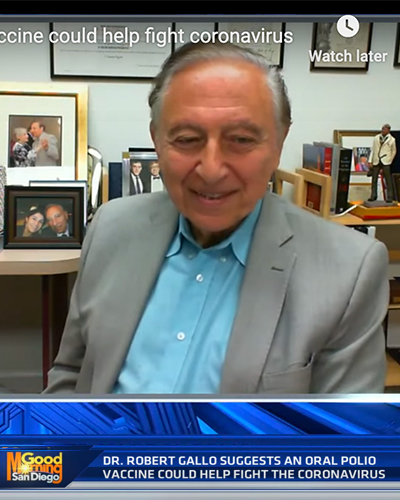
Friday, July 03, 2020
KUSI San Diego News: Dr. Robert Gallo suggests an oral polio vaccine could help fight coronavirus
Dr. Robert Gallo from the Institute of Human Virology at the University of Maryland School of Medicine and Global Virus Network wrote an op-ed in the Wall Street Journal earlier this week. The opinion piece stated that OPV, oral polio vaccine, could be a cheap and effective way to fight coronavirus. Dr. Gallo discussed his opinion piece on Good Morning San Diego.
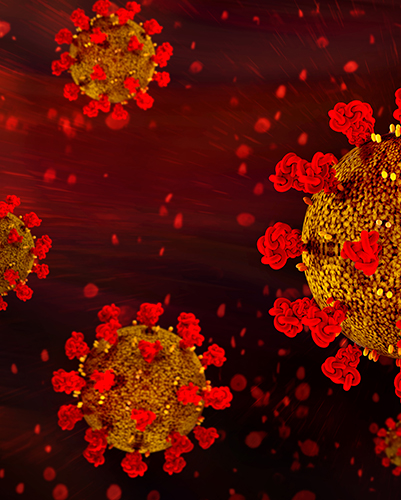
Thursday, July 02, 2020
13D Global Strategy & Research Report
COVID-19 outbreaks are multiplying and immunity may be short-lived. Could existing “live” vaccines, which stimulate innate immunity, outshine vaccines targeting the “spike” protein?

Thursday, June 25, 2020
The New York Times: Dr. Robert Gallo: The Case for a Stopgap Vaccine
In a letter to the editor to The New York Times entitled, "Dr. Robert Gallo: The Case for a Stopgap Vaccine," the noted virologist and head of the IHV says a polio vaccine may be an ideal solution until we find a Covid-specific vaccine.
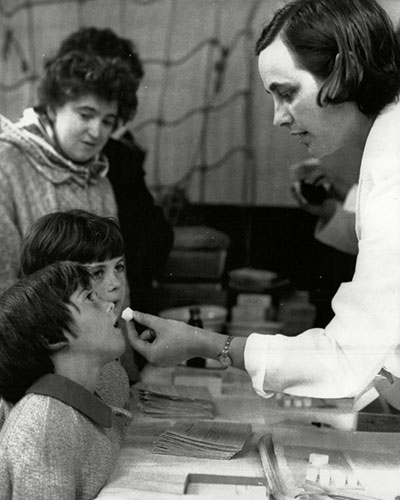
Wednesday, June 24, 2020
The New York Times: Decades-Old Soviet Studies Hint at Coronavirus Strategy
The New York Times: Decades-Old Soviet Studies Hint at Coronavirus Strategy: A married pair of virologists in Moscow tested a vaccine on their own children in the 1950s. Now, a side effect they found is sparking new hope for a defense against the coronavirus.
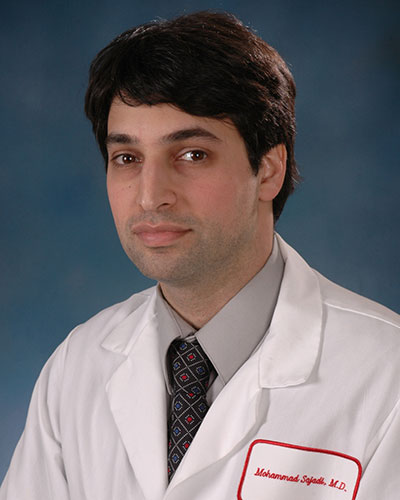
Tuesday, June 23, 2020
France 24: Dr. Mohammad Sajadi Speaks with France 24 on COVID-19 and Seasonality
Does Covid-19 spread faster in winter? Modelling by US researchers suggests the transmission of Covid-19 could be seasonal. Mohammad Sajadi, associate professor at University of Maryland School of Medicine's Institute of Human Virology, says the virus first spread in areas of low temperature and low humidity, common to winter time in temperate areas.
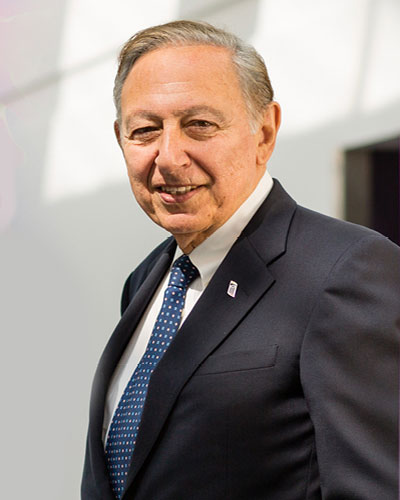
Friday, June 12, 2020
The Washington Post: We shouldn’t care who wins the vaccine ‘race’
Dr. Robert Gallo writes a Letter to the Editor to The Washington Post entitled, “We shouldn’t care who wins the vaccine ‘race’,” regarding their June 4 front-page article “Cold War echoes in race for vaccine,” about the “race” among nations, notably the United States, China, and Russia and other European nations for development of a vaccine against the novel coronavirus.

Thursday, June 11, 2020
Global Virus Network Suggests Oral Polio Vaccine May Provide Temporary Protection Against COVID-19
The Global Virus Network (GVN), a coalition comprised of the world’s preeminent human and animal virologists from 53 Centers of Excellence, including the Institute of Human Virology at the University of Maryland School of Medicine, and 10 Affiliates in 32 countries, published a viewpoint in Science today that the stimulation of innate immunity by live attenuated vaccines in general, and oral poliovirus vaccine (OPV) in particular, could provide temporary protection against coronavirus disease 2019 (COVID-19).
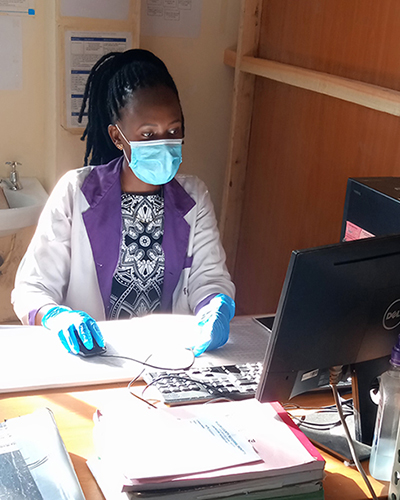
Tuesday, June 02, 2020
UM School of Medicine’s Institute of Human Virology Awarded Grants to Strengthen COVID-19 Response in Sub-Saharan Africa
The Center for International Health, Education and Biosecurity (Ciheb) at the University of Maryland School of Medicine’s Institute of Human Virology was awarded $4 million from the U.S. Centers for Disease Control and Prevention (CDC) to support coronavirus disease 2019 (COVID-19) response activities in Botswana, Nigeria, Malawi, and Mozambique.

Saturday, May 09, 2020
Dr. Robert Gallo Discuss COVID-19 Research on Aljazeera News
Aljazeera discusses the status of therapy, testing and vaccine research on SARS-CoV-2/COVID-19 with Dr. Robert Gallo.
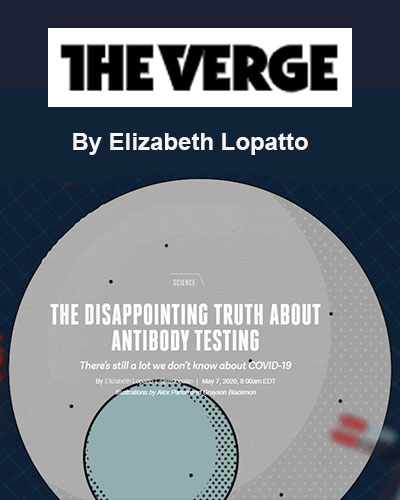
Thursday, May 07, 2020
The Disappointing Truth About Antibody Testing: There’s still a lot we don’t know about COVID-19
Dr. Robert Gallo discusses the status of COVID-19 antibody test with Vox's The Verge
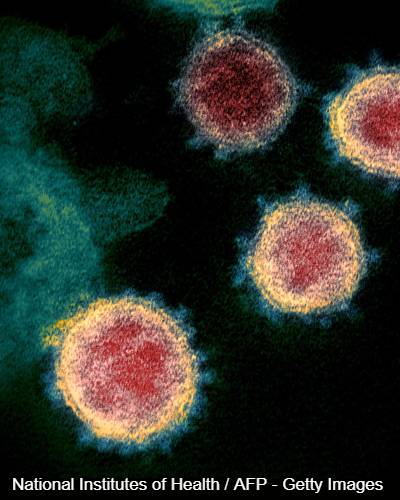
Wednesday, May 06, 2020
The Coronavirus Appears to have Mutated. What Does that Mean for Contagiousness?
While small mutations in the virus's genetic code are evident, it's unclear what these changes mean for people, if anything at all.
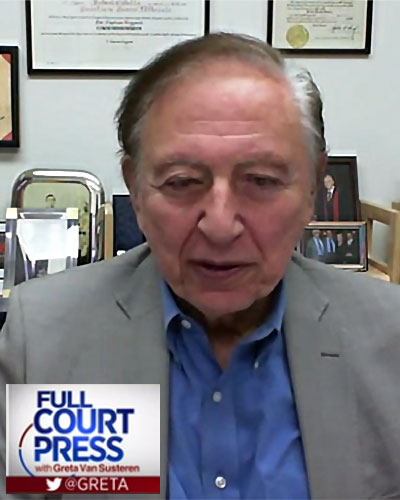
Saturday, May 02, 2020
IHV's Dr. Robert Gallo on FOX's Full Court Press with Greta Van Susteren
Overtime: Dr. Robert Gallo talks coronavirus treatments and antibody testing.

Saturday, May 02, 2020
Dr. Robert Gallo on iHeart Radio to Discuss COVID-19
Ryan Gorman hosts an iHeartRadio nationwide special featuring experts on COVID-19-related issues, including the co-founder and director of the Institute Human Virology at the University of Maryland School of Medicine, the senior vice president for U.S. Programs & Advocacy at Save the Children, and the managing editor of the Military Times. Topics range from a discussion about why some people infected by the coronavirus are asymptomatic, while others face severe reactions and even death, to assistance for impoverished children, and a breakdown of the impact the virus is having on the U.S. military and veterans.
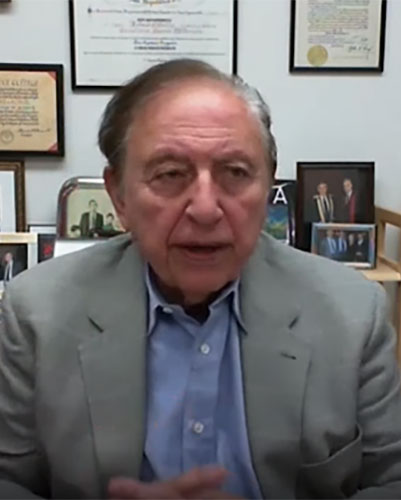
Friday, May 01, 2020
Could an Oral Polio Vaccine Stop the Coronavirus Pandemic?
A YouTube video by the American Chemical Society and produced by PBS.
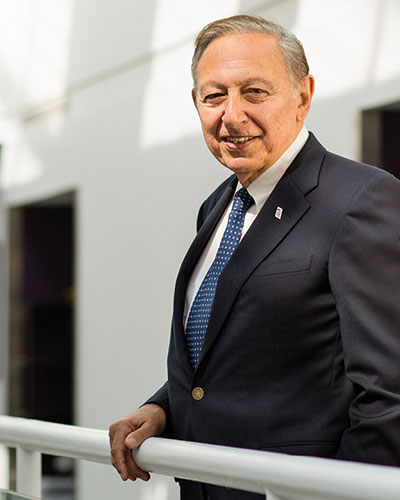
Friday, May 01, 2020
NYT Op-Ed Features Gallo-Chumakov Oral Polio Vaccine for COVID-19 Idea
What if We Already Have a Coronavirus Vaccine? Researchers are testing whether decades-old vaccines for polio and tuberculosis could protect against infection.
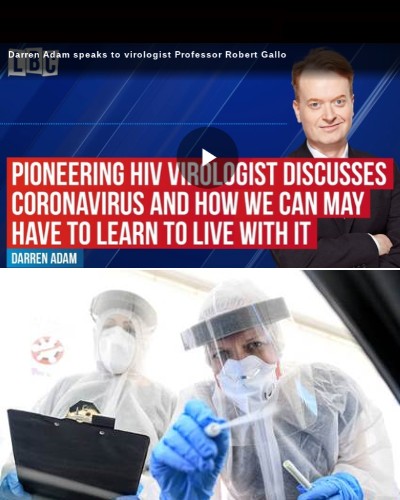
Monday, April 27, 2020
Expert Breaks Down Coronavirus Research: Is it Worse than HIV? Is it Mutating?
IHV Co-Founder and Director, Robert Gallo, MD is interviewed on LBC, a radio station in the United Kingdom. Darren Adam had Professor Gallo on the line to discuss his research in the past and the work he's carrying out during the coronavirus crisis. "We have learned to live with HIV" Darren began, listing out how it has changed from a death sentence to a disease that humans can live a long life with. He wondered if this could be possibly the path we're taking with Covid-19.
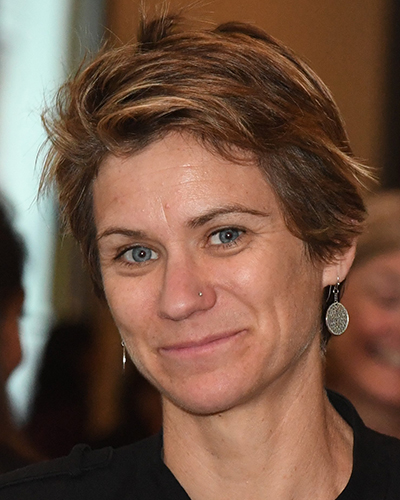
Saturday, April 11, 2020
Institute of Human Virology Honors Legacy of Maeve Kennedy McKean With Global Public Health Fellowship
The Institute of Human Virology (IHV) at the University of Maryland School of Medicine announced today the Maeve Kennedy McKean Global Public Health Fellowship, named in honor of the public health activist, whose inspiring life ended tragically alongside her oldest son last week. The first fellow will arrive on July 1 and will work on the Institute’s efforts in ending the HIV epidemic in Africa within its Center for International Health, Education, and Biosecurity (CIHEB) and Division of Clinical Care and Research.
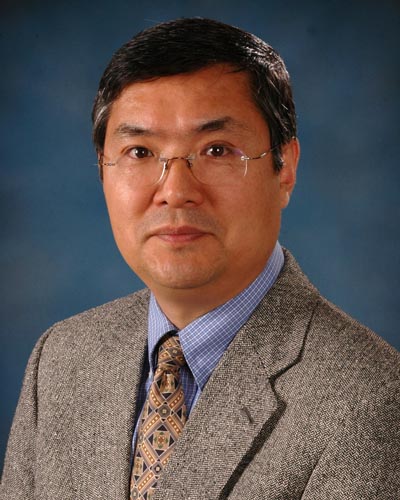
Wednesday, March 06, 2019
UMSOM Researcher Elected as Fellow to American Academy of Microbiology
Richard Y. Zhao, Ph.D., Professor of Pathology and Associate Member of the Institute of Human Virology (IHV) at the University of Maryland School of Medicine (UMSOM), has been elected as a Fellow to the American Academy of Microbiology (AAM). AAM is an honorific leadership group within the American Society for Microbiology (ASM).
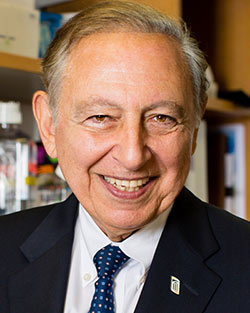
Tuesday, October 23, 2018
Institute of Human Virology Hosts 20th Annual International Meeting of Top Medical Virus Researchers in Baltimore, Maryland
The Institute of Human Virology (IHV) at the University of Maryland School of Medicine yesterday commenced IHV’s 20th Annual International Meeting, to be held through Thursday, October, 25 at the Four Seasons Hotel in Baltimore, Maryland. This year, among other viral and cancer related topics, the meeting is holding special sessions on the 40th anniversary of the first human retrovirus, Human T cell Leukemia Virus (HTLV), and the 15th anniversary of the President’s Emergency Plan for AIDS Relief (PEPFAR). IHV’s Annual International Meeting attracts hundreds of elite scientists who descend upon Baltimore to share ideas and inspire medical virus research collaborations.
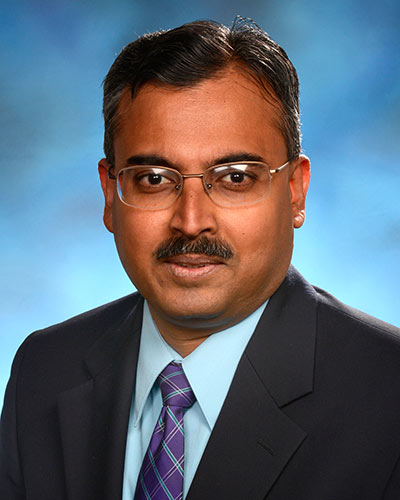
Wednesday, September 19, 2018
Institute of Human Virology (IHV) Awarded $12M to Combat Opioid Epidemic Through Clinical Research Trials
The Institute of Human Virology (IHV) at the University of Maryland School of Medicine will lead a $12 million dollar project to improve the morbidity and mortality of people with opioid use disorder (OUD). Utilizing a novel compound, IHV researches will implement a series of investigations, entitled SEARCH, to evaluate the underlying mechanisms of craving reduction as a strategy to prevent opioid misuse, dependence, and relapse. The grant is awarded through the National Institutes of Health’s (NIH) Helping to End Addiction Long-term (HEAL) Initiative, made possible through groundbreaking funding from the U.S. Congress.
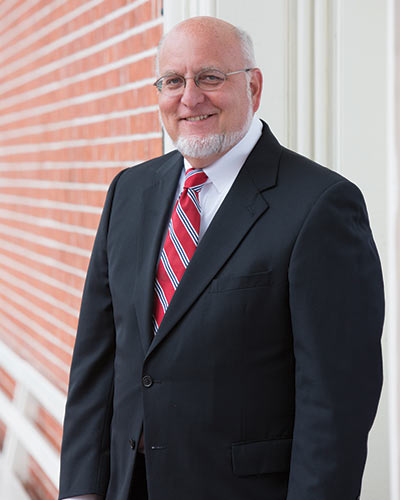
Wednesday, March 21, 2018
Dr. Robert Redfield, Co-Founder of the Institute of Human Virology at the University of Maryland School of Medicine, to Become CDC Director
The Institute of Human Virology (IHV) at the University of Maryland School of Medicine (UMSOM) congratulates its co-founder and associate director, Robert R. Redfield, MD, on his appointment to be the next director of the U.S. Centers for Disease Control and Prevention (CDC).
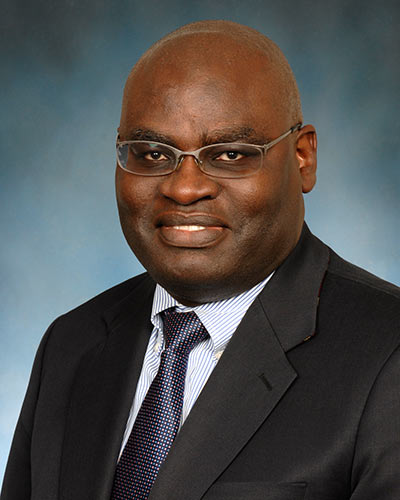
Tuesday, March 20, 2018
UMSOM Cancer Expert at Institute of Human Virology Named Fellow of American Society of Clinical Oncology
Clement A. Adebamowo, BM, ChB, ScD, FWACS, FACS, Associate Director of Population Science at the Marlene and Stewart Greenebaum Comprehensive Cancer Center, University of Maryland School of Medicine (UMSOM), and Professor of Epidemiology and Public Health, Institute of Human Virology, has been named a 2018 Fellow of the American Society of Clinical Oncology (ASCO).
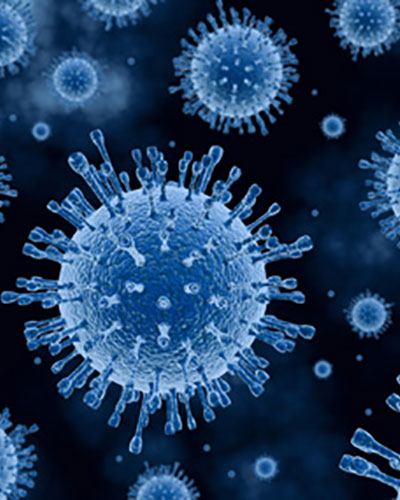
Wednesday, April 13, 2016
IHV Releases Data Supporting Community-Based Treatment Providers in Fight Against Hepatitis C
The Institute of Human Virology (IHV) at the University of Maryland School of Medicine released data today at The International Liver Congress 2016 in Barcelona, Spain demonstrating that treatment for hepatitis C virus (HCV) can be provided safely and effectively within a community-based and non-specialist setting.
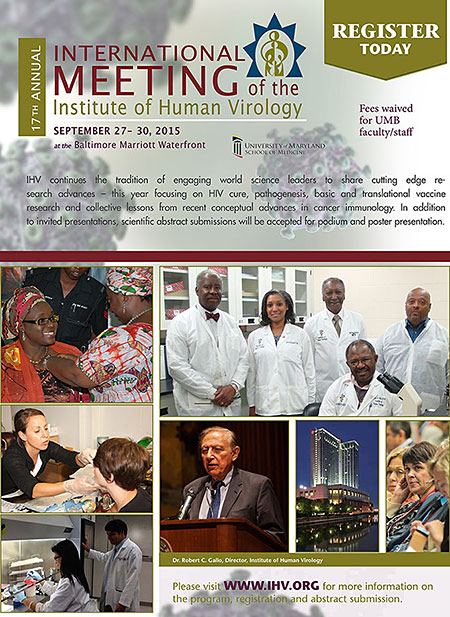
Tuesday, September 29, 2015
Institute of Human Virology Hosts International Meeting of Prominent AIDS Researchers
The Institute of Human Virology (IHV) at the University of Maryland School of Medicine is hosting IHV’s 17th Annual International Meeting Sunday, September 27 through Wednesday, September 30 at the Baltimore Marriott Waterfront Hotel in Baltimore, Maryland.


